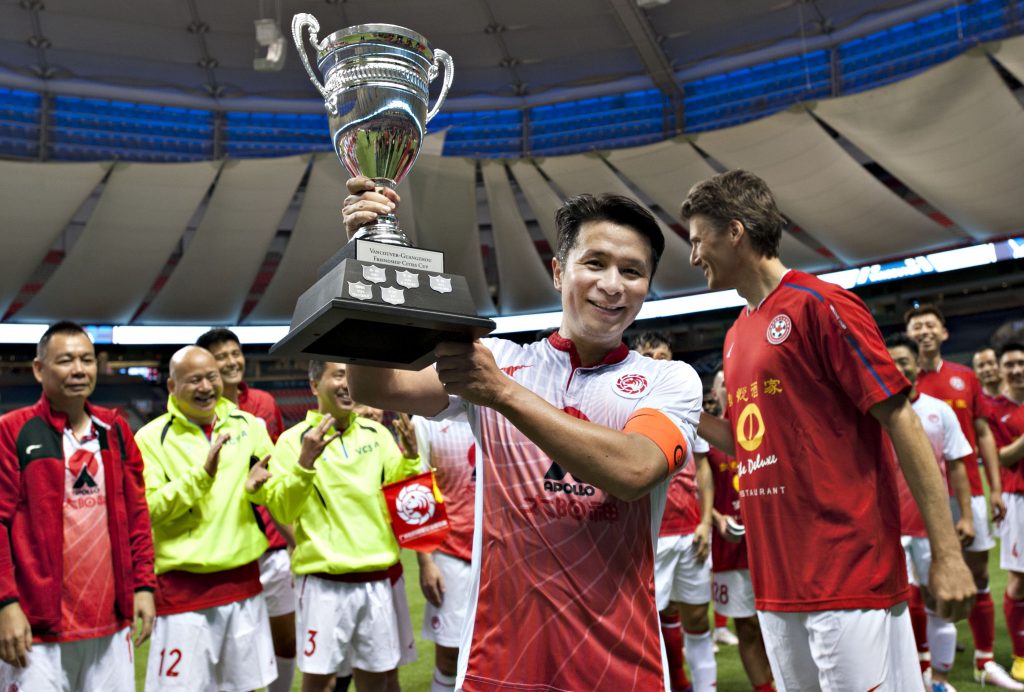China isn’t the first country that springs to mind when you think of football. Ranked 82nd in the FIFA world rankings – behind the likes of Benin, Uzbekistan and Cape Verde Islands – it doesn't have much hope of punching with the heavyweights of World Football anytime soon, right?
Wrong. President Xi laid out his love for the game even before he took office in 2013, and has put football right to the top of his political and economic agenda as he attempts to double the size of the Chinese sports economy over the next 10 years to more than $750bn.
President Xi’s government has put together a 50-point plan to combat all the issues facing football in China. Yep, that’s right… 50 points.
We’re not going to go into every point here, you’ll be happy to know, but, the basic long-term goal for football in China is: “Chinese football will become a sport that is universally participated in by the masses. In the whole society a healthy football culture will be established.”
Youth development
One of President Xi’s main ideas is to create a healthy interest in football from a young age, in the hope that this will create a golden era of players who will lead China to footballing glory within the next 10-15 years.
The President has introduced football into the school curriculum, and the government has produced textbooks explaining the art of the game.
China is aiming to have 20,000 ‘specialist’ football schools by 2020, and 50,000 of them by 2025. It’s also investing heavily in coaching, and will have 50,000 full-time and part-time coaches by 2020.
Attracting star players
To help encourage this generation of Chinese talent, a limit has been put on the number of foreign players each team can have. But, luring stars to Chinese Leagues is still really important, and a few big-name, big-money transfers have got the league a lot of attention.
Last month, 32-year-old striker Carlos Tevez, previously of both Manchester United and Manchester City, joined Shanghai Greenland Shenhua FC of the CSL. In the process, he has become the highest paid football player ever.
Despite seemingly having his best years behind him, Tevez is earning $768,000 a week on a two-year contract – almost double that of World Player of the Year Cristiano Ronaldo’s salary at Real Madrid ($455,000 a week).
And he’s not the only one; ex-Chelsea midfielder Oscar recently moved to China for a transfer fee of over £62.4m, and Belgian Axel Witsel turned down a move to Italian champions Juventus in favour of an eye-watering contract offer from Tianjin Quanjian.
Is the plan working?
A good measure for the success of a football league is just looking at how many people are turning up to watch the matches. And, in the CSL, that number is definitely growing. Average attendance last year was 24,159 people – up from 18,740 in 2012 - and not far off the Spanish La Liga average attendance for 2016 of 27,775.
Still, average attendance remains lower than the maximum capacity for almost all the stadiums in the league, and it’s still rare for a stadium to be completely sold out. If you compare that to the Premier League, for example, where fans complain about how hard it is to get a ticket, it’s pretty obvious there’s a long way to go
Could Tevez and co be the innovators that turn China into a footballing superpower, or will the CSL simply become another retirement home for the greats of the game? Only time will tell. But with the financial backing of China’s investors and the sheer volume of youngsters that will be playing the sport for years to come, the country’s role in the future of football shouldn’t be underestimated.

